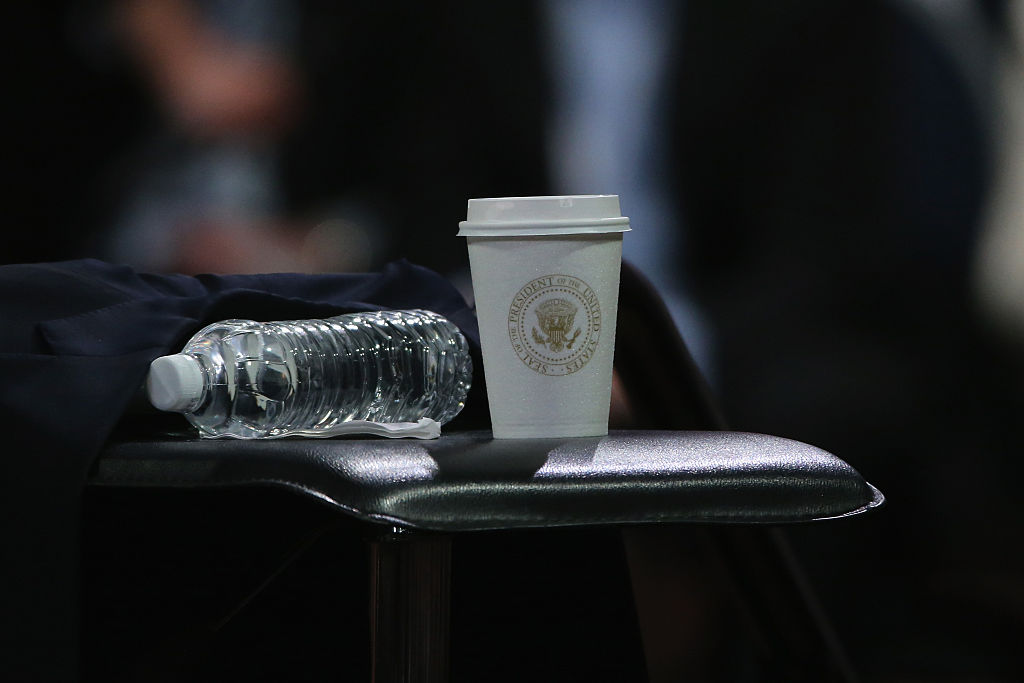How Trump's policies might endanger your cup of coffee


A free daily email with the biggest news stories of the day – and the best features from TheWeek.com
You are now subscribed
Your newsletter sign-up was successful
President Trump's decision to pull the U.S. out of the global Paris climate agreement could lead to devastating flooding, droughts, increasingly volatile weather, and other existential threats to humanity. But it could also mark the beginning of the end of coffee, Mike Hoffmann argues at Fortune. More than 60 percent of Americans start their day with this "extraordinary beverage," notes Hoffmann, an entomology professor who heads the Cornell Institute for Climate Smart Solutions, and rising temperatures will lead not only to much higher coffee bean prices, but also potential scarcity. He elaborates:
Most coffee is grown near the equator, but increasing temperatures, new pests, droughts, and intensive rainfall are taking their toll on the crop. Coffee varieties are sensitive to even slight changes in temperature, which affect both yield and flavor. There is also a new pest, the coffee borer, which seems to enjoy the changing conditions and is spreading worldwide. Growing food is already risky, but it will only become riskier as climate change impacts intensify. If we persist on our current trajectory, the potential for temperatures to increase in the next few decades could reduce the global area suitable for production of coffee by as much as half by 2050. The impact will be enormous, particularly for the 25 million small land-holder farmers who grow coffee in more than 70 countries. [Hoffmann, Fortune]
Hoffmann goes on to offer some solutions and options to fight the global headwinds coffee is facing due to climate change, and climate change in general. "Imagine that: The end of coffee," he concludes. "That sounds like the end of America itself!" (Fact check: True.) You can read his entire argument at Fortune.
A free daily email with the biggest news stories of the day – and the best features from TheWeek.com
The Week
Escape your echo chamber. Get the facts behind the news, plus analysis from multiple perspectives.

Sign up for The Week's Free Newsletters
From our morning news briefing to a weekly Good News Newsletter, get the best of The Week delivered directly to your inbox.
From our morning news briefing to a weekly Good News Newsletter, get the best of The Week delivered directly to your inbox.
Peter has worked as a news and culture writer and editor at The Week since the site's launch in 2008. He covers politics, world affairs, religion and cultural currents. His journalism career began as a copy editor at a financial newswire and has included editorial positions at The New York Times Magazine, Facts on File, and Oregon State University.
-
 Tourangelle-style pork with prunes recipe
Tourangelle-style pork with prunes recipeThe Week Recommends This traditional, rustic dish is a French classic
-
 The Epstein files: glimpses of a deeply disturbing world
The Epstein files: glimpses of a deeply disturbing worldIn the Spotlight Trove of released documents paint a picture of depravity and privilege in which men hold the cards, and women are powerless or peripheral
-
 Jeff Bezos: cutting the legs off The Washington Post
Jeff Bezos: cutting the legs off The Washington PostIn the Spotlight A stalwart of American journalism is a shadow of itself after swingeing cuts by its billionaire owner
-
 TikTok secures deal to remain in US
TikTok secures deal to remain in USSpeed Read ByteDance will form a US version of the popular video-sharing platform
-
 Unemployment rate ticks up amid fall job losses
Unemployment rate ticks up amid fall job lossesSpeed Read Data released by the Commerce Department indicates ‘one of the weakest American labor markets in years’
-
 US mints final penny after 232-year run
US mints final penny after 232-year runSpeed Read Production of the one-cent coin has ended
-
 Warner Bros. explores sale amid Paramount bids
Warner Bros. explores sale amid Paramount bidsSpeed Read The media giant, home to HBO and DC Studios, has received interest from multiple buying parties
-
 Gold tops $4K per ounce, signaling financial unease
Gold tops $4K per ounce, signaling financial uneaseSpeed Read Investors are worried about President Donald Trump’s trade war
-
 Electronic Arts to go private in record $55B deal
Electronic Arts to go private in record $55B dealspeed read The video game giant is behind ‘The Sims’ and ‘Madden NFL’
-
 New York court tosses Trump's $500M fraud fine
New York court tosses Trump's $500M fraud fineSpeed Read A divided appeals court threw out a hefty penalty against President Trump for fraudulently inflating his wealth
-
 Trump said to seek government stake in Intel
Trump said to seek government stake in IntelSpeed Read The president and Intel CEO Lip-Bu Tan reportedly discussed the proposal at a recent meeting
